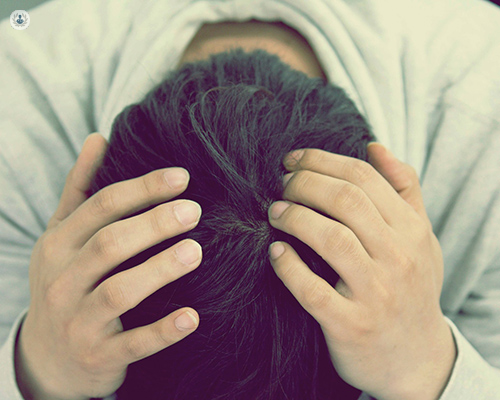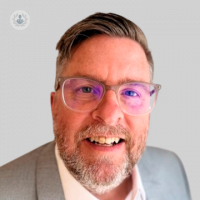What are the main treatment options for anxiety?
Written in association with:Anxiety is a prevalent mental health condition characterised by persistent feelings of worry, fear, and unease. It can manifest as a response to specific situations or events, such as public speaking or exams, but for many individuals, anxiety can become a chronic condition, affecting their daily lives.
This condition can range from mild to severe, and its symptoms can be both psychological and physical. Here to expand on anxiety as a medical term is distinguished clinical psychologist, Dr Andy Pike.

What is anxiety?
Psychologically, anxiety often involves excessive worrying, restlessness, and difficulty concentrating. Individuals may experience a sense of impending doom or feel on edge constantly. Physically, anxiety can manifest through symptoms such as increased heart rate, sweating, trembling, and gastrointestinal issues. Chronic anxiety can also lead to sleep disturbances, fatigue, and muscle tension.
What are the different kinds of anxiety?
There are several types of anxiety disorders, including generalised anxiety disorder (GAD), panic disorder, social anxiety disorder, and specific phobias. Generalised anxiety disorder is characterised by excessive, uncontrollable worry about various aspects of daily life.
Panic disorder involves recurrent panic attacks, which are sudden episodes of intense fear accompanied by physical symptoms like chest pain and shortness of breath. Social anxiety disorder involves an intense fear of social situations and being judged or scrutinized by others. Specific phobias are intense fears of particular objects or situations, such as heights or spiders.
What are the main causes of anxiety?
The exact causes of anxiety are not fully understood, but it is believed to result from a combination of genetic, environmental, and psychological factors. Traumatic experiences, chronic stress, and a family history of anxiety or other mental health conditions can increase the risk of developing anxiety disorders.
What are the main treatment options for anxiety?
Treatment for anxiety typically involves a combination of therapy, medication, and lifestyle changes. Cognitive-behavioural therapy (CBT) is one of the most effective forms of therapy for anxiety. It focuses on identifying and changing negative thought patterns and behaviours.
Medications such as selective serotonin reuptake inhibitors (SSRIs) and benzodiazepines can also help manage symptoms. Additionally, lifestyle changes such as regular exercise, a healthy diet, adequate sleep, and stress management techniques like mindfulness and meditation can play a crucial role in managing anxiety.


